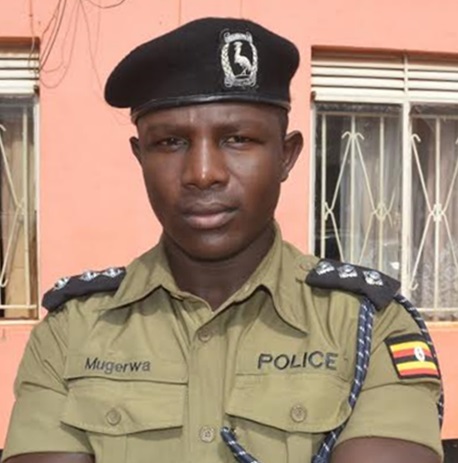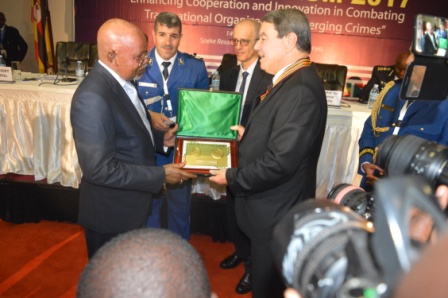The hectic Kabalagala suburb of Kampala is fast becoming like Esso Corner. Even someone who settled in Kampala a year ago knows where Esso Corner is, but they have never seen the Esso petrol station that gave the famous stage its name, because Esso left Uganda over a decade ago.
Similarly, Kabalagala has for long been known as Kampala’s red light district where prostitution and narcotics were the order of the day. That reputation will stay for a long time, but the reality is that Kabalagala has reformed, thanks to Community Policing which has taken root in the densely populated suburb.
Kabalagala’s notoriety started at a small entertainment spot near Kansanga trading centre on Gaba road at the foot of Muyenga hill in the 1970s. Regime beneficiaries used to go drinking there and meet the pleasure girls for transactional sex. Even as insecurity intensified over the city, Kabalagala continued offering release and pleasure to free-spending expatriates and nationals. When peace was finally restored in 1986, nothing seemed able to stop the growth of Kabalagala as people could drink and dance till morning without any fear of being molested. Property prices around Kabalagala skyrocketed as even one square metre for erecting a kiosk could earn a fortune after operating for a while. And then came the universities, which now number eight, all concentrated in that locality and accommodating thousands of foreign students.
But with the freedom also came decadence. By the turn of the century, Kabalagala had become Uganda’s undisputable centre of narcotics trade and abuse. Expatriates and foreigners from neighbouring countries all congregate there to have fun and over-indulge in all manner of excesses. Narcotics and transactional sex beckoned and pleasure girls from other countries started seeking their fortune at Kabalagala.
So what do you do if you are the police commander of a drug infested area and every time you arrest a drug dealer he casually pleads guilty and is fined a paltry $300 and returns to his trade the same day?
“It was quite frustrating apprehending a big drug dealer in the morning and at midday he is back to business, having pleaded guilty and paid a fine of one million($300)” recalls ASP Benard Mugerwa, who has been OC station at Kabalagala for three years and is now the DPC.
But the officers of Kabalagala were not ready to give up faced with the same frustration that has become a song with all enforcement agencies that look on helplessly as weak laws make a mockery of their efforts to protect society from such dangerous criminals. The UPF officers at Kabalagala figured that since narcotics use is accompanied by other attendant crimes, capitalizing on those could be a way out. And so they started charging the drug barons with their other crimes which, though less serious that drug dealing, attract more commensurate measures. And thus the cleansing of Kabalagala of its narcotics stains started.
ASP Mugerwa recalls the reaction of disbelief by three notorious West African drug dealers who were big narcotics suppliers when they were charged with illegal entry and stay in the country. They had abused Uganda’s immigration for years that the least court could do was ordering their deportation. Local drug dealers also had other crimes brought up and the courts sent them where they belonged. With the bog dealers out of the way, the officers got some breathing space to start educating the residents and business people through community policing. As a result, Kabalagala division has changed drastically in recent years.
A New Kabalagala
A casual look by a passerby may not reveal the change that Kabalagala has undergone in the past couple of years, after all the entertainment crowds are still there, even bigger. But it is cleaner entertainment, amid better security and almost free of narcotics. The few joints of ‘grass’ smoked and other narcotics used in Kabalaga today are procured from elsewhere in Kampala, the police officers reveal.
One of the major transformations that have taken place is the cooperation that bar owners now extend to police, voluntarily. The DPC’s phone is full of text messages he gets from bar owners alerting him to the presence of drug peddlers and other suspicious characters who walk onto their premises. They are usually brief and hurried like “short man in blue shirt at counter”, and the police swing into action as soon as the sms lands. Sometimes bar owners have offered free booze to wanted characters to keep them around and give police time to arrive.
Even the prostitutes left in Kabalagala are the ‘honest’ type who do not connive with thugs to steal clients’ money and other valuables, which used to be a frequent complaint in the past.
In reality therefore, Kabalagala is no longer a red district; pink maybe, but not dangerous anymore.
This is surprising because entertainment in the area has grown tremendously. Once Capital Pub dominated the area, but new attractions like de Poshe, Dueces and Venom have since opened and pull as big crowds, yet the crime incidence continues to fall.
But how have the community and the police managed to convert Uganda’s most ‘sinful’ locality into a zone of significantly declining crime?
It is worth noting that within Kabalagala police division, falls the pilot community policing model of Muyenga, so the know-how to go about this new approach to policing was available.
This police division covers the affluent Muyenga and Biziga hills, the once deadly slums of Namuwongo and Kibuli, the landing sites of Gaba and the immediate lake waters of the area, the five-star Speke Resort of Munyonyo, eight (08) international universities.
The division’s uniqueness can also be seen from the big number of foreign nationals who live here on a fulltime basis, possibly the heaviest concentration of foreigners in Uganda. There are nearly 20,000 foreigners residing in this area. Working with the local leaders, Police at Kabalagala have managed to identify, record and profile virtually all foreigners residing in the area.
So while the area has possibly the highest concentration of foreigners in the country, there are hardly any illegal aliens here.
Regional Academic Mecca
The big numbers of foreign students here all have valid student permits issued by the Immigration Directorate. The divisional police Community Liaison Officer always keeps in touch with the registrars of all the eight universities to ensure that the student permits of all their students are in order.
Kabalagala division has become the melting pot of bringing African youth from around the region together in quest of university education. There are thousands of these foreign students attending at least eight universities based in this corner of Kampala. These are Kampala International University, Kampala University, Islamic Univerity in Uganda, International University of East Africa, Cevendish University, St Augustine University, Virtue and IHK University of Health Sciences.
Students at these universities are well integrated in the society and most are not accommodated in hostels; rather, they live within the communities, occupying ordinary rentals like the locals and are registered alongside others foreign resident families.
In all the parishes and villages of the division, foreigners have been guided to elect a community leader who is expected to be in constant touch with the police. So while the largest concentration number of foreigners in the country is to be found in Kabalagala division, there are now virtually no illegal immigrants here, and all foreign students have been regularized with the immigration directorate, through coordination of the DPC with the different university registrars.
Soft but Effective War on Narcotics
Kabalagala police division’s quiet war on narcotics found when many bona fide residents were already drug addicts and they could not be wished away. In the past two or so years, the police working through the crime preventers have done a tremendous job of healing and rehabilitating these addicts.
In an advanced country, what the police has achieved and crime preventers would have cost millions of dollars in specialized rehabilitation centres and counselors. What the police Community Liaison Officers in Kabalagala have been doing is to work with local leaders to identify the drug abusers and simply attach each of them to a volunteer crime preventer of the same age and social bracket to act as their monitor to ensure that they do not backslide once they have been counseled and agreed to quit the habit. This is a division of rich and poor households, and many young people from wealthy families have been addicted drug abusers. Without locking away the addicted children in expensive rehabs in or out of the country, some wealthy families from places like Buziga and Muyenga have found a secret – the police at Kabalagala can attach a crime preventer to your kid without disrupting normal home or school routine for purposes of counseling and surveillance. The simple, unsophisticated approach has saved lives and rescued careers dramatically, and many parents do not want the programme to stop even after six months of abstention by the former addicts. There are no payments as the crime preventers do it on voluntary basis.
Dozens of other drug addicts have been recruited into the Muyenga football tournament, which has 12 teams. The police have avoided forming a team of its own and instead have distributed its personnel who have joined each and all of the 12 parish teams. In each team there are at least three police officers (which means never wins and never loses in the tournament).
Obviously sport and physical exertion plays an important role in rehabilitating a drug addict and dozens get part of their treatment through the football tournaments. And those who fully recover start playing part in rehabilitating others.
Through engagement of the bar owners, Police now gets early warnings of the presence of troublemakers and dealers in prohibited substances. Of course it was not always like that but again, police used creativity in securing the bar owners’ cooperation. Through education and dialogue, bar owners in Kabalagala area have been reminded that they are better off cooperating with police rather than having KCCA turned onto them and hit them where it hurts most – in the pocket. While a drug dealer can get off by paying a mere $300 fine, a bar operator could have his license cancelled if his premises are used for drug consumption – thereby violating the conditions under which the license was issued. It therefore makes more sense for the bar operator to cooperate the police to keep drug abusers out of his premises.
The quiet turn around of Kabalagala is testimony of what community policing can achieve. And now with some one thousand-crime preventers trained, the division is becoming safer and inching closer to becoming crime free every day. Foot patrols have increased visibility of the uniform and supplemented with intelligence from leaders and crime preventers, the division is achieving remarkable results.





